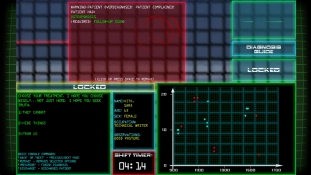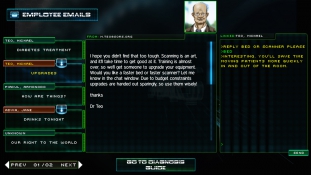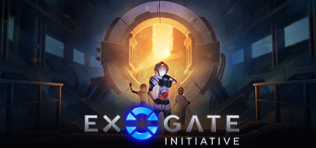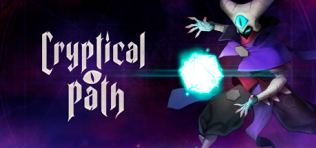Après le succès critique rencontré par Papers, Please, certains créateurs se sont librement inspirés du concept pour faire leurs propres jeux. SORS, du studio Science : Gamed, fait partie de ceux-là à la différence près qu’il ne s’agit pas ici d’incarner un inspecteur de l’immigration mais un médecin dont la seule vocation est de sauver la vie de ses patients.
Dans un futur proche, la Terre vit des heures bien sombres. Avec la surpopulation vient une hausse de la criminalité et une obligation d’étendre toujours plus haut les gratte-ciel afin de loger tout ce monde. Mais en tant que médecin, le héros de SORS doit faire face à une autre menace toutefois : celle des hackers qui, sans que l’on en connaisse la raison, perturbent les services hospitaliers. Ainsi, tout comme dans Papers, Please – dont les créateurs revendiquent l’influence dans le développement de leur projet – c’est le quotidien d’un travailleur qui est au cœur de la narration. Répondre aux e-mails, examiner les patients, opérer et surtout, découvrir ce qui motive les hackers à s’en prendre à l’hôpital, telles sont les missions que doit accomplir jour après jour le personnage que l’on incarne dans SORS.
Fait intéressant, le studio développant SORS revendique utiliser de véritables données scientifiques pour leurs jeux. À ce titre, cette simulation médicale traite de maladies et de traitements réels. Par ailleurs, la tournure que prennent les événements est en partie influencée par les décisions du joueur, selon s’il décide de faire confiance ou non à telle personne ou s’il prend le temps de discuter avec ses patients. Tout cela mène ainsi à pas moins de six fins différentes. Sortie début mars en téléchargement sur itch.io pour un prix libre minimal de 5.99£ (soit un peu plus de 8€), SORS a ensuite passé avec succès l’épreuve Greenlight, ce qui nous assure de le retrouver très prochainement sur Steam. Et si vous hésitez encore, une démo gratuite est en libre téléchargement, de quoi se faire une idée sur le gameplay qui est, il faut le dire, relativement atypique.
Fil d'actualités
-
28/01/250



























Comments
Ok, je viens de faire la démo...
"SORS revendique utiliser de véritables données scientifiques"
N'importnawak! Même Theme Hospital était plus crédible que ce que propose ce SORS!! O_O
Consternant argument marketing, les développeurs ne connaissent de toute évidence RIEN de ce qu'ils abordent dans leur jeu..... -_-'
Jeu qui en plus d'être stupide d'un point de vu "scientifique" présente un gameplay soporifique et fastidieux... :/
Hi Nival973,
Apologies, I don't speak French so this reply is in English, and I may have misinterpreted your comments (as it was translated by google!). Firstly, I'm sorry you don't like the gameplay, but I understand it's not everyone's type of game.
However - I can 100% guarantee the game is based on real science!! S.O.R.S is a genuine scientific technique - see here: http://www.stfc.ac.uk/CLF/Facilities/Ultra/Highlights/15073.aspx
Also, all the medical information in the game is taken from the NHS (UK health service) website! It is genuine AND accurate!
I will admit that the viewpoint of the player, and the 'look' of the scanning room is not based on fact. It has been imagined to make it more of a game, but also because the SORS technology is still being trialled in hospitals so hasn't been properly designed yet!
If anyone has any more questions, please do get in touch via twitter: @ScienceGamed. We'd love to hear from you!
thanks,
Rich
"I can 100% guarantee the game is based on real science!! S.O.R.S is a genuine scientific technique - see here: http://www.stfc.ac.uk/CLF/Facilities/Ultra/Highlights/15073.aspx"
S.O.R.S. is a SPECTROSCOPIC technic, SO it delivers a curve with peaks which indicate the amount of different elements. Nothing to do with dots which appear one by one ; and only a single random dot by scanning? and Hb or gluc when scanning arms, and phosphates when scanning legs??
SORS works by scanning a targeted tissue... tissue, not a whole arm or a whole leg to provide specific informations...
And should delivers, in ONE scanning, an integral measurement of all elements present in the target tissue (spectroscopic data, indeed...).
And what about this diagnosis of diabetes?? It's the concentration of glucose in absolute value that makes the diagnosis ; not the value relative to the Hb concentration.... (or you can do it with the concentration of HbA1c fraction relative to total Hb, method which is going to become the new standard)
What are these fucking "liver pains"?? Only a complaint, taken alone nothing to conclude from a medical point of view!
The electrocardiogram tracing shows only "QRS" waves, where are "P" and "T" waves?...
The buzzing-wrong-dots have nothing to do with what is a measurement uncertainty in experimental science... And is a scientific non-sense! If the device can know if a measure is wrong (since it buzz), why dipslaying it??
A medical approach must be driven by a FUNDAMENTAL THING: the reason for consulting. Such thing never appears..... ...so you can't do anything as a doctor...
And what about randomly screening only some diseases, not the most frequent, not the most dangerous...... Medical non-sense again....
So... NO your game is VERY FAR to be 100% based on real science...... -_-'
A "SORS" system that have nothing to do with what the SORS is ; highly incorrect physiological considerations ; senseless scientific approach ; sensless medical approach....
Finaly 1% maybe... :/ (only because it's true that insulin is a treatment for diabetes)
Nival, you clearly have a sound scientific understanding of a lot of the science in the game. I'm sorry you don't like how the science is presented, however our claim that the game is based on real science is correct. We've never claimed that the game an accurate portrayal of how these conditions are diagnosed in real life. This is sci-fi, after all! We had to make changes and simplify things because it is a game, and needs to appeal to everyone. to say the game is based/inspired by real science is NOT the same as saying it is the same as what goes on in hospitals! That would be a very complicated game that many people (apart from you and other doctors) would understand!
I'm sorry you don't like the game or how the science is represented, but let me re-iterate again that our claim that the game is based on real science is accurate. To be clear, it is NOT based on how these diseases are really diagnosed in a hospital, but we never made that claim.
"our claim that the game is based on real science is accurate."
At most, your game is roughly and loosely inspired by elements that exist in reality, but in any case "based on real science", or based on waht these elements actually are....
The approach you have is a very common and popular vision of the technical things you deal with, with typical huge misunderstanding of the real implications on which they are based.
If you think such a game can be argued "based on real science", so ALL GAMES THAT EXIST (and that mention existing things) could be too!! So it's obviously a falacious marketing argument :/.
"To be clear, it is NOT based on how these diseases are really diagnosed in a hospital, but we never made that claim."
Of course, and in fact it is not based at all on what these deases really are....
So... it's not based on science....... -_-'
Je suis un peu sceptique quant l'approche choisie.
Dans Papers Please, l'aspect répétitif ajoutait une réelle dimension au jeu.
Le joueur est placé directement dans cette situation de travail quasi-forcé, proche du stakhanovisme rappelant directement le régime communiste. En plus de cela, vient s'ajouter le travail sur l'ambiance, quelques noms de démocraties populaires imaginaires et des choix moraux en conflit directs avec nos valeurs. Le joueur se sent vraiment écrasé par le poids des décisions et leurs enjeux.
Le choix du milieu médical SF avec des hackers qui dérangent les opérations, je suis beaucoup moins chaud. Je trouve ça un peu artificiel. Surtout que tu gardes le même thème, le medecin urgentiste, tu le places dans un dispensaire en temps de guerre et bingo, tu as les choix moraux et tout ce qui va avec. Mais je suis peut être en train de faire un autre jeu là. :/ En plus, je ne sais pas pourquoi mais ça me rappelle beaucoup la série Trauma Center (notamment celui sur Wii).
Par contre, l'aspect données scientifiques, c'est très bon ça !
A tester à l'occaz, en tout cas, merci pour la découverte
J'ai joué à la démo. Pas si mal. A voir la version finale sur steam.
A voir la version finale sur steam.